Top 10 Greatest Geniuses of All Time
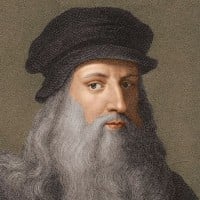 Leonardo di ser Piero da Vinci (April 15, 1452 - May 2, 1519) more commonly Leonardo da Vinci or simply Leonardo, was an Italian polymath whose areas of interest included invention, painting, sculpting, architecture, science, music, mathematics, engineering, literature, anatomy, geology, astronomy,... read more
Leonardo di ser Piero da Vinci (April 15, 1452 - May 2, 1519) more commonly Leonardo da Vinci or simply Leonardo, was an Italian polymath whose areas of interest included invention, painting, sculpting, architecture, science, music, mathematics, engineering, literature, anatomy, geology, astronomy,... read more Greatest genius of all time. The one and only universal genius.
The man could paint with one hand and write a paper with the other at the same time! No one will ever come nearly as close artistically and in terms of being ahead of their time.
 Albert Einstein (14 March 1879 – 18 April 1955) was a German-born theoretical physicist, widely acknowledged to be one of the greatest and most influential physicists of all time. Einstein is best known for developing the theory of relativity, but he also made important contributions to the development... read more
Albert Einstein (14 March 1879 – 18 April 1955) was a German-born theoretical physicist, widely acknowledged to be one of the greatest and most influential physicists of all time. Einstein is best known for developing the theory of relativity, but he also made important contributions to the development... read more "If you want to live a happy life, tie it to a goal, not to people or objects." His quote suits him best.
He revolutionized the understanding of our universe with his Special (1905) and General (1915) Theories of Relativity.
Why 3rd? Must be 1st. No other chance at all. The revolutionizer can't be replaced by anyone even in the future.
 Aristotle was a Greek philosopher and scientist born in the city of Stagira, Chalkidice, on the northern periphery of Classical Greece.
Aristotle was a Greek philosopher and scientist born in the city of Stagira, Chalkidice, on the northern periphery of Classical Greece. The great Greek philosopher, physicist, and polymath who was the first to give a scientific explanation of the universe.
 Sir Isaac Newton PRS was an English physicist and mathematician who is widely recognised as one of the most influential scientists of all time and a key figure in the scientific revolution.
Sir Isaac Newton PRS was an English physicist and mathematician who is widely recognised as one of the most influential scientists of all time and a key figure in the scientific revolution. How is he below Einstein? Einstein is just a pop culture figure. As a pure mathematics major, I hate how everyone assumes STEM majors idolize Einstein.
Inventor of calculus and the theory of gravity. He has been praised by so many other geniuses that no further justification is needed.
Interestingly enough, he was more interested in the book of Daniel than his work.
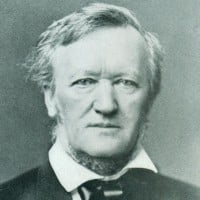 Wilhelm Richard Wagner was a German composer, theatre director, polemicist, and conductor who is primarily known for his operas.
Wilhelm Richard Wagner was a German composer, theatre director, polemicist, and conductor who is primarily known for his operas. What for ordinary people defies understanding is the truth that one man could carry in him the totality of that design, could possibly construe from the first note to the last a coherent immensity of a complexity which defies analysis. - Professor George Stein
Perhaps the greatest genius who has ever lived. - WH Auden
 Wolfgang Amadeus Mozart, baptised as Johannes Chrysostomus Wolfgangus Theophilus Mozart, was a prolific and influential composer of the Classical era, born in Salzburg.
Wolfgang Amadeus Mozart, baptised as Johannes Chrysostomus Wolfgangus Theophilus Mozart, was a prolific and influential composer of the Classical era, born in Salzburg. Not only is Mozart's music among those great pieces surviving centuries, but his abilities to recall entire symphonies and compose new ones out of thin air show his greatness as a genius.
Honestly, Mozart! This far down! But more importantly, underneath Wagner! He was a musical genius and pretty much the definition of genius.
"We need not despair on mankind knowing Mozart was a man." - Albert Einstein
"A prolific fountain of beautiful music." - Mike Fuller
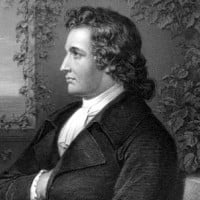 Johann Wolfgang Goethe (28 August 1749 – 22 March 1832) was a German writer and statesman. His body of work includes epic and lyric poetry written in a variety of metres and styles; prose and verse dramas; memoirs; an autobiography; literary and aesthetic criticism; treatises on botany, anatomy, and... read more
Johann Wolfgang Goethe (28 August 1749 – 22 March 1832) was a German writer and statesman. His body of work includes epic and lyric poetry written in a variety of metres and styles; prose and verse dramas; memoirs; an autobiography; literary and aesthetic criticism; treatises on botany, anatomy, and... read more Great German writer and polymath. He had a used vocabulary of about 50,000 words, twice Shakespeare's! He is believed to be the last man to know all the knowledge in the world.
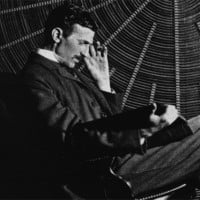 Nikola Tesla was a Serbian-American inventor, electrical engineer, mechanical engineer, physicist, and futurist best known for his contributions to the design of the modern alternating current electricity supply system, X rays, Radio, Remote Control, Laser, and Electric motors. Tesla developed and used... read more
Nikola Tesla was a Serbian-American inventor, electrical engineer, mechanical engineer, physicist, and futurist best known for his contributions to the design of the modern alternating current electricity supply system, X rays, Radio, Remote Control, Laser, and Electric motors. Tesla developed and used... read more Nikola Tesla gave us that much number of important things which no one else could ever give. Others researched things in science, but Nikola Tesla invented... Surely the underrated genius.
Underrated genius. How can you read this without him?
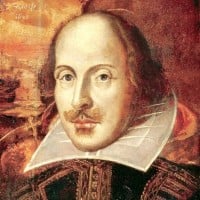 William Shakespeare was an English poet, playwright, and actor, widely regarded as the greatest writer in the English language and the world's pre-eminent dramatist.
William Shakespeare was an English poet, playwright, and actor, widely regarded as the greatest writer in the English language and the world's pre-eminent dramatist. Perhaps the greatest writer who has ever lived.

I would say JC Maxwell had the greatest mind of his time and the greatest scientific influence. Without his electric and magnetic interactions, light would not have been seen as an EM wave. Without that, Einstein would not have proved that nothing can exceed light speed. And we would not have had mass explained the way it was.
Planck would not have come up with the quantized theory of light, which sparked quantum mechanics and, so, no explanation of the atom after Rutherford. So Maxwell definitely gets my vote.
The Newcomers
 Neil deGrasse Tyson is an American astrophysicist, author, and science communicator. Since 1996, he has been the Frederick P. Rose Director of the Hayden Planetarium at the Rose Center for Earth and Space in New York City.
Neil deGrasse Tyson is an American astrophysicist, author, and science communicator. Since 1996, he has been the Frederick P. Rose Director of the Hayden Planetarium at the Rose Center for Earth and Space in New York City.
 Archimedes of Syracuse was an Ancient Greek mathematician, physicist, engineer, inventor, and astronomer.
Archimedes of Syracuse was an Ancient Greek mathematician, physicist, engineer, inventor, and astronomer. The greatest mathematician of the ancient world. His contributions to math and science are of immeasurable value. Just to top it off, there is proof that he had rudimentary ideas of calculus, over a thousand years before its inception.
 Napoléon Bonaparte was a French military and political leader who rose to prominence during the French Revolution and led several successful campaigns during the Revolutionary Wars.
Napoléon Bonaparte was a French military and political leader who rose to prominence during the French Revolution and led several successful campaigns during the Revolutionary Wars. He ranks along with Alexander the Great as the greatest military leader of all time.
 Michelangelo di Lodovico Buonarroti Simoni (6 March 1475 – 18 February 1564) was an Italian sculptor, painter, architect, and poet of the High Renaissance who exerted an unparalleled influence on the development of Western art... read more
Michelangelo di Lodovico Buonarroti Simoni (6 March 1475 – 18 February 1564) was an Italian sculptor, painter, architect, and poet of the High Renaissance who exerted an unparalleled influence on the development of Western art... read more Italian painter, sculptor, poet, and architect. He painted the Sistine Chapel and is perhaps the greatest artist who has ever lived.
 John von Neumann was a Hungarian-American pure and applied mathematician, physicist, inventor, computer scientist, and polymath.
John von Neumann was a Hungarian-American pure and applied mathematician, physicist, inventor, computer scientist, and polymath. Brilliant mathematician and physicist! And extraordinary polymath!
 Stephen William Hawking (January 8, 1942 - March 14, 2018) was an English theoretical physicist, cosmologist, author and Director of Research at the Centre for Theoretical Cosmology within the University of Cambridge. His most famous research was on the theory of Black Holes.
Stephen William Hawking (January 8, 1942 - March 14, 2018) was an English theoretical physicist, cosmologist, author and Director of Research at the Centre for Theoretical Cosmology within the University of Cambridge. His most famous research was on the theory of Black Holes. The man qualified to succeed Einstein. He doubted the Big Bang, calling it the Big Squeeze, and advanced cosmology.

 Marie Skłodowska Curie, born Maria Salomea Skłodowskap, was a Polish and naturalized-French physicist and chemist who conducted pioneering research on radioactivity.
Marie Skłodowska Curie, born Maria Salomea Skłodowskap, was a Polish and naturalized-French physicist and chemist who conducted pioneering research on radioactivity.
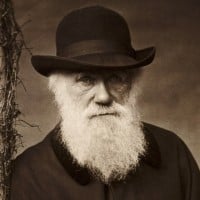 Charles Robert Darwin ( 12 February 1809 – 19 April 1882) was an English naturalist, geologist and biologist, best known for his contributions to evolutionary biology. His proposition that all species of life have descended from a common ancestor is now widely accepted and considered a fundamental... read more
Charles Robert Darwin ( 12 February 1809 – 19 April 1882) was an English naturalist, geologist and biologist, best known for his contributions to evolutionary biology. His proposition that all species of life have descended from a common ancestor is now widely accepted and considered a fundamental... read more Gautama Buddha, also known as Siddhārtha Gautama, Shakyamuni Buddha, or simply the Buddha, after the title of Buddha, was an ascetic and sage, on whose teachings Buddhism was founded.
Gautama Buddha, also known as Siddhārtha Gautama, Shakyamuni Buddha, or simply the Buddha, after the title of Buddha, was an ascetic and sage, on whose teachings Buddhism was founded. Leonhard Euler was a Swiss mathematician, physicist, astronomer, logician and engineer who made important and influential discoveries in many branches of mathematics like infinitesimal calculus and graph theory while also making pioneering contributions to several branches such as topology and analytic... read more
Leonhard Euler was a Swiss mathematician, physicist, astronomer, logician and engineer who made important and influential discoveries in many branches of mathematics like infinitesimal calculus and graph theory while also making pioneering contributions to several branches such as topology and analytic... read more Arguably the greatest mathematician in history. The constant e (Euler's constant) is named after him, and he published significant papers in a huge range of topics at an unprecedented rate, including many so ahead of their time that they weren't recognized for their true usefulness for decades.
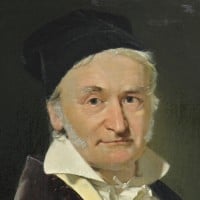 Johann Carl Friedrich Gauss was a German mathematician who contributed significantly to many fields, including number theory, algebra, statistics, analysis, differential geometry, geodesy, geophysics, mechanics, electrostatics, astronomy, matrix theory, and optics.
Johann Carl Friedrich Gauss was a German mathematician who contributed significantly to many fields, including number theory, algebra, statistics, analysis, differential geometry, geodesy, geophysics, mechanics, electrostatics, astronomy, matrix theory, and optics.

 Terence "Terry" Chi-Shen Tao is an Australian-American mathematician who has worked in various areas of mathematics.
Terence "Terry" Chi-Shen Tao is an Australian-American mathematician who has worked in various areas of mathematics.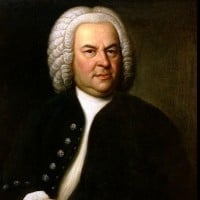 Johann Sebastian Bach was a German composer and musician of the Baroque period. He is known for instrumental compositions such as the Brandenburg Concertos and the Goldberg Variations as well as for vocal music such as the St Matthew Passion and the Mass in B minor.
Johann Sebastian Bach was a German composer and musician of the Baroque period. He is known for instrumental compositions such as the Brandenburg Concertos and the Goldberg Variations as well as for vocal music such as the St Matthew Passion and the Mass in B minor. Michael Faraday was an English scientist who contributed to the study of electromagnetism and electrochemistry.
He is known for inventing the first rubber balloon and the first faraday cage.
Michael Faraday was an English scientist who contributed to the study of electromagnetism and electrochemistry.
He is known for inventing the first rubber balloon and the first faraday cage.